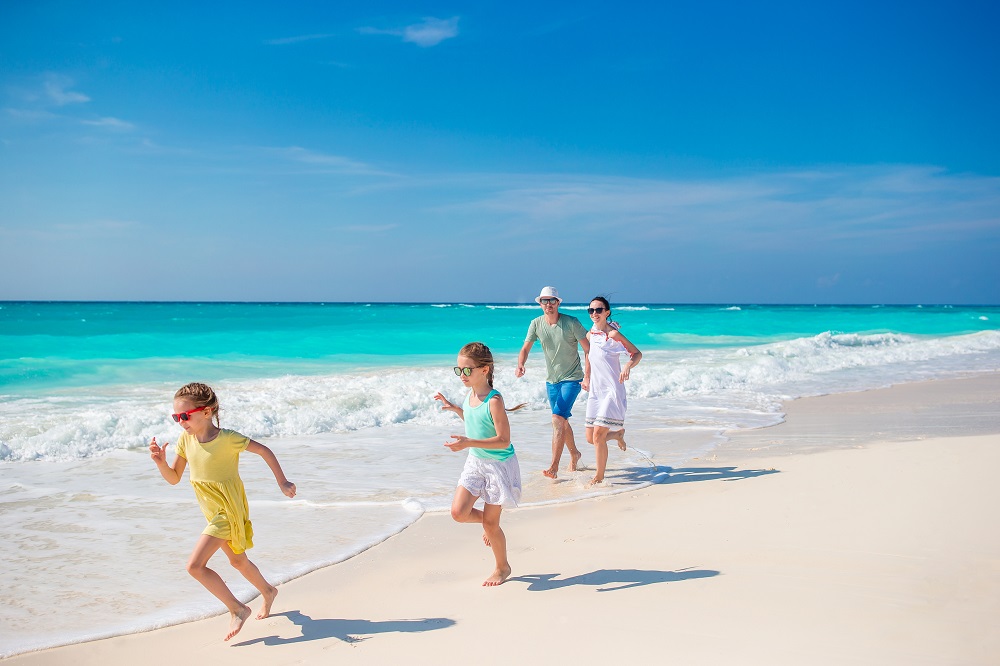As the days lengthen and the temperatures slowly rise, you may be thinking about your next summer getaway. Travel costs are likely to increase in 2019 for a number of reasons, including increasing oil prices and overall inflation pressures. This makes it more important than ever to make the most of your travel budget! SageVest Wealth Management’s top 10 travel tips will help save you time, stress, and money.
1) Choose Your Destination Carefully
Norway’s predicted to be the most expensive international destination for Americans in 2019 [1], with New York the priciest domestic destination [2]. More inexpensive choices include Nepal, Santiago, and Zanzibar [3] overseas, or Anchorage, San Antonio, or Virginia’s own Williamsburg closer to home.
The US State Department provides travel alerts about global regions with higher risks for US visitors, plus helpful advice on overseas customs.
2) Plan Ahead For Travel
Advantages to planning travel in advance include:
- The further ahead you plan, the more you’ll probably save.
- You’ll also have more options.
- Confirming travel details in advance increases confidence and reduces stress. [4]
- Your happiness increases the longer you spend anticipating your vacation [5].
3) Flexible Travel Dates
Booking off-peak or last minute can reap deep discounts, including any advantageous changes in currency exchange rates.
Apps like Hopper (for flights), Skyscanner (for flights, hotels, and cars), Kiwi (for trains, buses, and flights), and ShipMate (for cruises) alert you to price drops and last-minute deals.
4) Maximize Loyalty Points
Credit cards with air miles may also offer perks like lounge access, priority boarding, and better seat selection. Before signing up, read the small print to ensure you get the benefits you most want or need.
Hotel chains, airlines, cruise companies, and car rental agencies also typically offer rewards programs featuring discounts and upgrades.
Use your hard-earned rewards wisely e.g., use air miles for upgrades on long-haul flights, not short domestic trips.
5) Work With A Travel Agent
Travel agents have become more popular recently [6]. Consider working with a travel agent if your vacation:
- Is high-stake e.g., a destination wedding or honeymoon.
- Involves many variables or complexities e.g., a family reunion or round-the-world trip.
- You’re too busy to conduct research yourself.
Travel agents often have access to special discounts that can help offset their fees, plus insider information to make your vacation more memorable. Find a reputable travel agent via the American Society of Travel Advisors.
6) Cards Versus Cash
Always carry a backup card or cash, plus customer service numbers (toll-free or international) for credit card companies and banks. Leave photocopies of your passport and financial items (including traveler’s check numbers and both sides of credit and debit cards) with a trusted individual back home.
a) Credit Cards
Contact your card company in advance to:
• Tell them your travel plans. This helps avoid rejected transactions.
• Discuss card benefits such as travel insurance or traveler assistance.
• Determine fees for currency transactions and ATMs, so that you can include these in your budget. If you’re a frequent traveler, consider a card with zero fees.
b) Debit Cards
With no cash advance feature, a debit card can help you stay in budget. However, don’t rely solely on a debit card as:
• It could get swallowed by an ATM and take time to retrieve.
• It might not be accepted locally.
• Your PIN might not meet local statutory requirements.
c) Cash
Carrying cash is convenient. You won’t have to find an ATM, bank, or exchange desk, especially upon arrival. Exchanging cash for local currency is also typically cheaper than exchanging traveler’s checks or getting a cash advance on your credit card.
However, cash is a security risk and can’t be replaced if lost or stolen. Furthermore, if you leave or enter America with more than $10,000, you’ll have to file a report with US Customs And Border Protection.
7) Travel Documents
Advance planning helps avoid expedited processing fees:
a) Passports
Getting a passport takes 6-8 weeks (longer during busy periods, or if it’s your first US passport). Maryland and DC drivers’ licenses are compliant with the Federal REAL ID program. However, post-October 2020, Virginians may need a passport or other identification, even for domestic flights.
b) Visas
Some countries require a travel visa, issued by the foreign government’s embassy or consulate. This process can be lengthy.
8) Traveler Health And Wellbeing
Obtain any required vaccinations well in advance.
Always carry your healthcare card on your person. A letter from your doctor describing your condition(s) and prescription medication(s) may also be helpful. Consider getting it translated if you’re traveling to a non-English speaking region.
Pack medication in original containers in carry-on luggage. Take sufficient amounts to last the duration of your trip. If you’re traveling for an extended period, know how to refill prescriptions, and schedule any necessary checkups before you leave.
If the agent named in your Medical POA is traveling with you, consider naming a temporary alternative back home.
9) Travel Insurance
Your credit card or home insurance may offer travel protection. If not, or if there are limitations, purchasing a travel insurance policy may prove prudent. Travel insurance can cover:
- Cancellation – if you can’t travel due to illness (confirm coverage for pre-existing conditions), natural disaster, jury duty, or other reasons outside your control.
- Health Insurance – Medicare doesn’t cover you overseas [7], and many health insurance policies (including most Medicare Advantage Plans and HMOs) impose higher out-of-pocket expenses, and limit or even deny coverage beyond a certain distance of home – even within the US. Be sure to check any policy limitations, exclusions e.g., pre-existing conditions, and out-of-pocket costs e.g., medical evacuation.
- Baggage Protection.
10) Expect The Unexpected
Provide your itinerary and contact info to a relative or friend. Especially if you’re traveling solo, schedule regular phone check-ins, and discuss what to do if you miss a check-in call.
Know how to call local emergency services.
Travel assistance includes various services, including referrals to doctors, lawyers, translators, and more. You may be eligible through your credit card, home insurance company, tour operator, or roadside assistance provider.
Sign up for the State Department’s Smart Traveler Enrollment Program (STEP), a free service that provides links to the nearest US Embassy or Consulate, for advice and assistance.
Make sure your Financial POA is up-to-date. In the event you’re stranded overseas, your nominated individual can act on your behalf.
Note: We have security procedures to ensure that we don’t act upon someone else’s instructions without your approval.
Travel is one of the many benefits that financial security can bring to your lifestyle. Please contact us to learn how our customized financial planning and true wealth management approach can help you enjoy a world of travel opportunities.
References
[1] https://www.escapehere.com/inspiration/the-10-most-expensive-vacation-destinations-in-the-world/10/
[2] https://www.escapehere.com/inspiration/the-10-most-expensive-vacation-destinations-in-the-world/3/
[3] https://www.rd.com/advice/travel/budget-travel-destinations-2019/
[4] https://www.thinkwithgoogle.com/feature/search-insights/#/
[5 https://www.ncbi.nlm.nih.gov/pmc/articles/PMC2837207/




